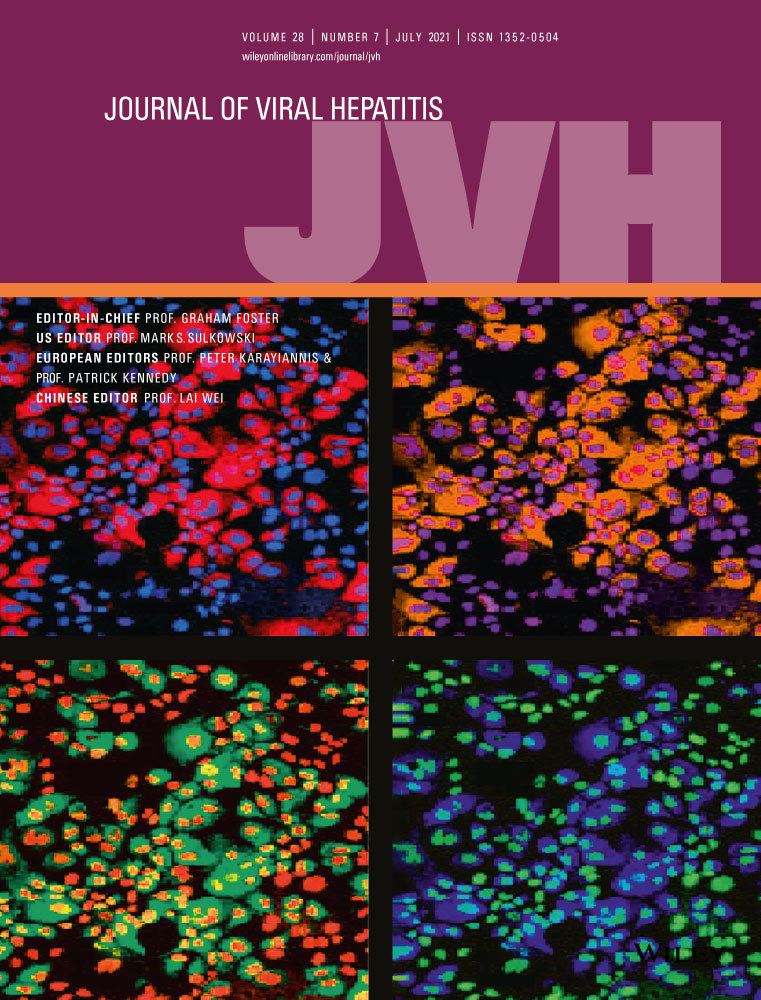Patient-reported outcomes of the Treatment and Prevention Study: A real-world community-based trial of direct-acting antivirals for hepatitis C among people who inject drugs
Funding information
The Treatment and Prevention Study was supported by an investigator-initiated grant to the Burnet Institute from Gilead Sciences. PD is funded by a National Health and Medical Research Council (NHMRC) Senior Research Fellowship. The authors also acknowledge the contribution to this work of the Victorian Operational Infrastructure Support Program received by the Burnet Institute.
Abstract
The impact of hepatitis C cure with direct-acting antivirals (DAAs) on patient-reported outcomes (PROs) in community settings remains unclear. We aimed to assess changes in PROs over time and whether treatment was associated with sustained improved PROs in a cohort of people who inject drugs. This study is a sub-analysis of the Treatment and Prevention Study, a nurse-led trial where people who inject drugs and their injecting partners were recruited in a community setting, in Melbourne, Australia. Three participant groups were characterized: treatment, untreated and non-viremic (hepatitis C RNA negative at screening). PROs included assessment of health-related quality of life using the Short Form-8 (SF-8) Survey and life satisfaction using Personal Wellbeing Index (PWI). PROs were measured at baseline and every 12 weeks until week 84. Generalized estimating equations were used to measure whether treatment was associated with longitudinal PRO change. A total of 215 participants were included in this analysis. PWI scores were significantly higher at week 12 for both treatment group (p = 0.0309) and non-viremic group (p = 0.0437) compared to baseline. However, treatment was not associated with longitudinal change in PRO scores. In conclusion, we found DAA treatment did not significantly improve PRO scores compared to those not receiving treatment and without hepatitis C. The measures used in this study may not be sensitive enough to capture the hepatitis C specific improvements in quality of life that treatment affords or factors other than treatment may be influencing quality of life scores in this cohort.
CONFLICTS OF INTEREST
SG, BH, MS and TS have no competing interests to declare. JD, MH and the Burnet Institute receive investigator-initiated research funding from Gilead Sciences, Merck, AbbVie and Bristol-Myers Squibb. JD is an advisory board member for Gilead Sciences, AbbVie and Merck. AT is an advisory board member for Gilead Sciences, AbbVie, Bristol-Myers Squibb, Merck, Roche, Eisai and Bayer and has received speaker fees for Gilead, Bristol-Myers Squibb, AbbVie and Roche. PH has received investigator-initiated research funding to his institution from Gilead Sciences and AbbVie. PD has received investigator-driven funding from Gilead Sciences and Indivior for work unrelated to this study. PD has served as unpaid members of an Advisory Board for an intranasal naloxone product.
Open Research
DATA AVAILABILITY STATEMENT
Research data are not shared.




